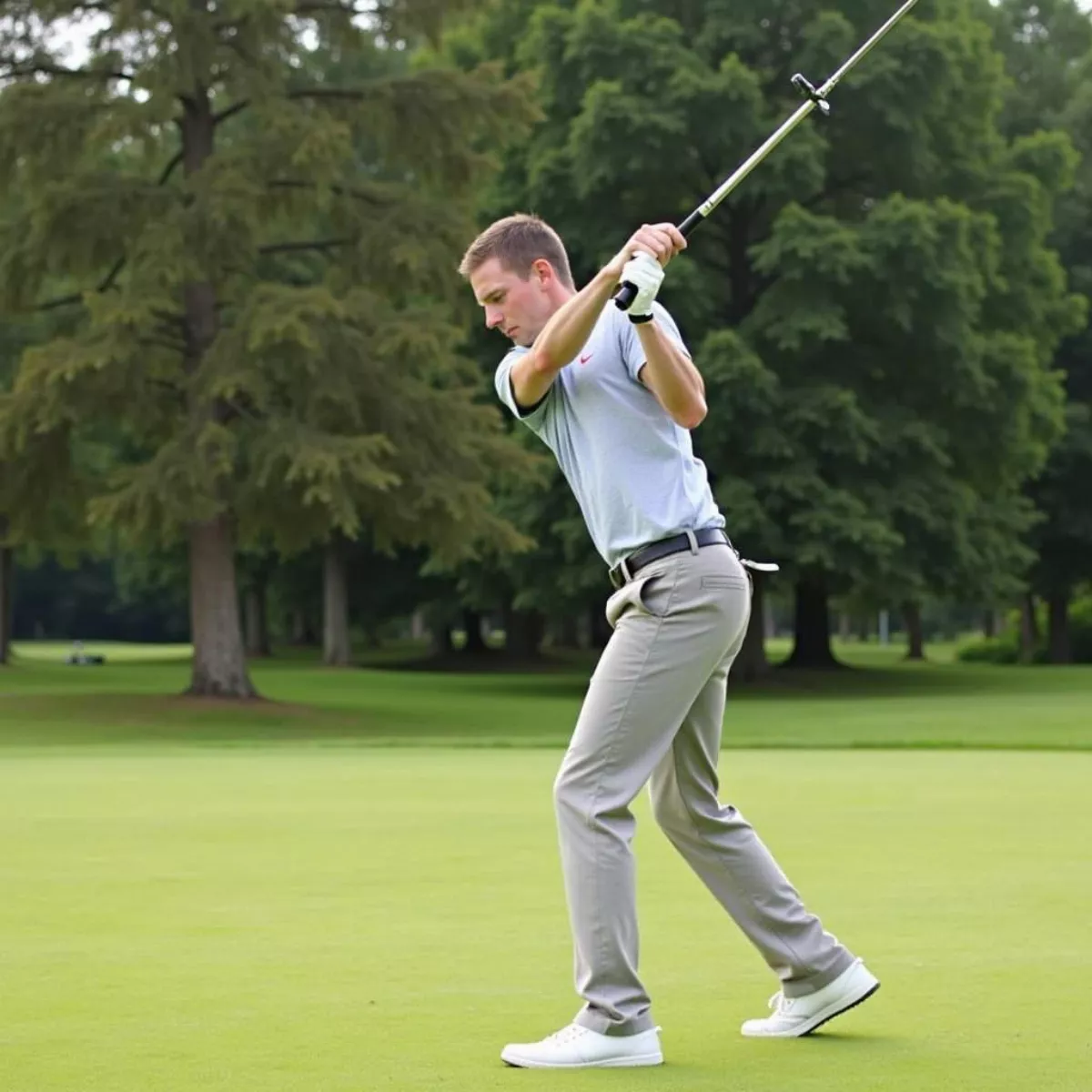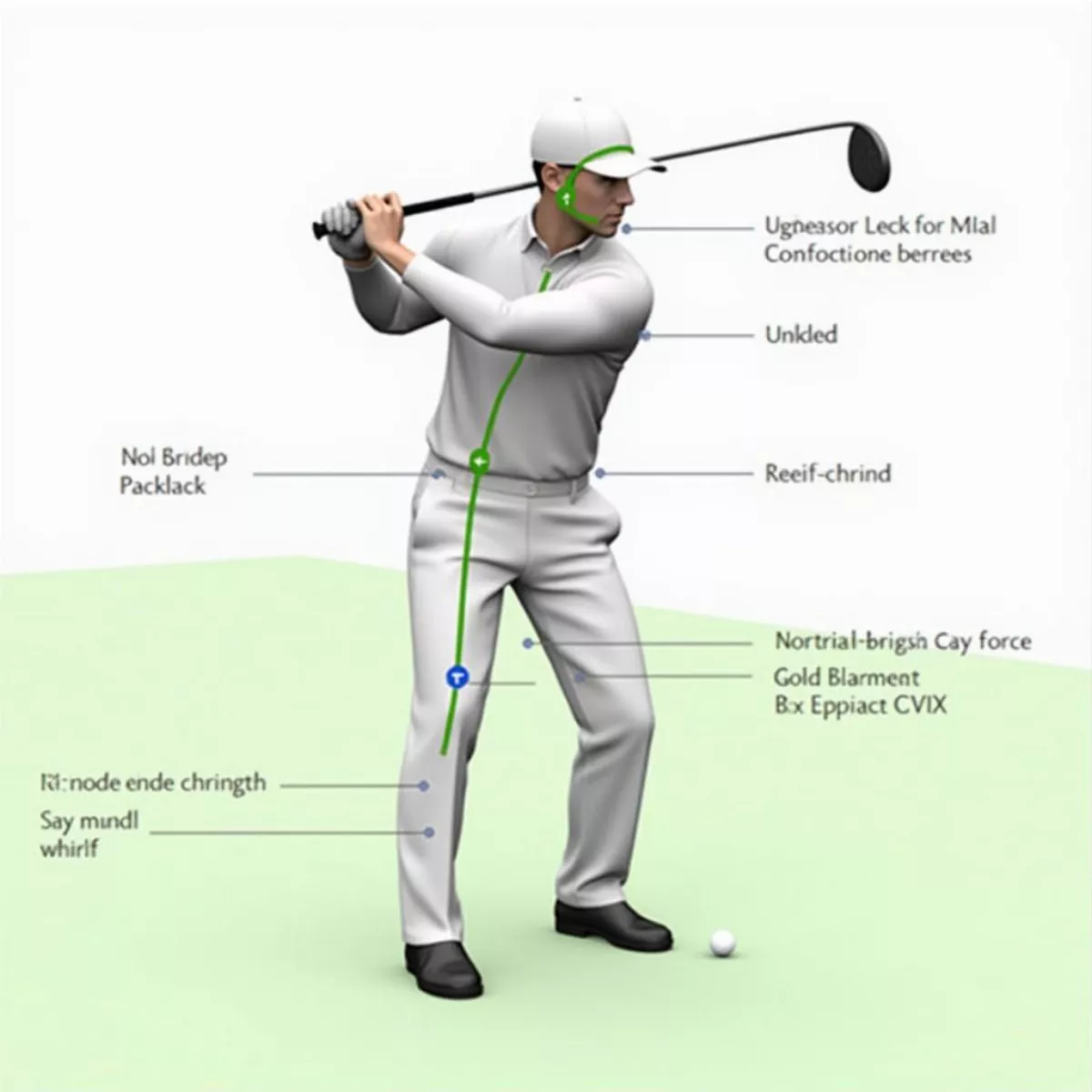Golf isn’t just a game of precision; it’s about distance and power too. Many golfers spend countless hours on the driving range, fine-tuning their swing mechanics, yet they still feel stuck in their performance. If you find yourself in this predicament, consider focusing on increasing your swing speed—the key driver of hitting longer drives.
One of the essential aspects of fostering swing speed is using the right training aids. With a plethora of options available, it can feel overwhelming to choose the best ones for your practice routine. In this guide, we’ll dive into the world of golf swing speed training aids, helping you understand their benefits, the science behind them, and how to effectively incorporate them into your training regimen.
What Are Golf Swing Speed Training Aids?
Golf swing speed training aids are tools designed to help golfers enhance their swing speed and overall performance. These aids focus on improving various aspects of the golf swing, such as:
- Strength Training: Building muscle to produce more power.
- Technique Improvement: Refining the mechanics of your swing.
- Timing and Coordination: Synchronizing your body movements effectively.
Investing time with these training aids can lead to substantial gains in distance and accuracy on the course.
Types of Golf Swing Speed Training Aids
Here are some popular categories of golf swing speed training aids that you might find beneficial:
Weighted Clubs
Weighted clubs, often referred to as training clubs, help build the muscles used during your golf swing. These clubs typically weigh between 1 to 5 pounds more than your standard driver.
- Benefits:
- Strengthens swing-related muscles.
- Improves overall swing mechanics.
- Increases endurance during rounds.
Swing Speed Radar
A swing speed radar measures the speed of your clubhead at impact. This instant feedback helps you monitor your progress.
- Benefits:
- Provides real-time data.
- Helps you understand the effects of different drills.
- Offers motivation to improve.
 Golfer using a swing speed radar on the driving range
Golfer using a swing speed radar on the driving range
Resistance Bands
Resistance bands have gained popularity among golfers as a practical tool to enhance flexibility and strength.
- Benefits:
- Helps with muscle activation during your swing.
- Improves range of motion.
- Lightweight and portable for easy use anywhere.
Swing Trainers
Devices like swing trainers focus on improving your swing path and tempo. These tools typically have adjustable weights or various resistance levels.
- Benefits:
- Encourages proper swing technique.
- Develops muscle memory.
- Reduces the risk of injury.
Speed Sticks
Speed sticks are specifically designed to increase your swing speed by practicing with lighter or weighted implements.
- Benefits:
- Engages your fast-twitch muscle fibers for explosive speed.
- Helps in transitioning from light to heavy clubs.
- Easy to incorporate into your practice routine.
 A golfer practices his swing with speed sticks
A golfer practices his swing with speed sticks
Launch Monitors
Though on the pricier side, launch monitors provide detailed analytics on your swing speed, ball launch angle, and spin rates.
- Benefits:
- Offers comprehensive performance feedback.
- Helps tailor your training based on data.
- Great for serious golfers looking to optimize their game.
Apps and Software
With modern technology, various apps can track your swing speed and provide drills. Although less traditional, these digital aids can enrich your practice experience.
- Benefits:
- Accessible data and performance tracking.
- Provides personalized training plans.
- Easily connects with your smartphone or tablet.
How to Use Golf Swing Speed Training Aids Effectively
- Set Specific Goals: Decide on a measurable goal, such as increasing your swing speed by a certain amount over a specific timeframe.
- Incorporate Aids into Your Routine: Use the aids consistently in your training. For example, dedicate a portion of your practice session to weighted clubs or resistance bands.
- Monitor Progress: Use tools like a swing speed radar or app to track improvements. Note changes in your swing speed weekly or monthly.
- Focus on Technique: Don’t sacrifice form for speed. Ensure your swing mechanics remain solid as you work on increasing speed. Working with a coach can be beneficial here.
- Rest and Recovery: Just like in any training regimen, give your muscles time to recover to avoid overtraining, which can lead to injuries.
The Science Behind Swing Speed Training Aids
The human body relies heavily on muscle memory and neuromuscular connections to enhance physical performance. Training aids can help refine these connections, which is crucial for achieving higher swing speeds.
 Illustration of golf swing biomechanics
Illustration of golf swing biomechanics
Key Concepts
- Muscle Activation: Weighted training tools activate fast-twitch fibers that are primarily responsible for producing explosive movements.
- Speed Dynamics: The kinetics of the golfer’s body must synchronize when swinging. Aids like swing trainers teach proper timing and coordination.
- Biomechanics: The principles of biomechanics reveal how an efficient swing utilizes body mechanics to generate speed. Training aids can help you improve these mechanics.
Tailored Training Plans
Consider this simple table to create an effective golf swing speed training regimen:
| Training Aid | Frequency | Duration | Goal |
|---|---|---|---|
| Weighted Clubs | 2-3 times/week | 15-20 minutes | Muscle strengthening |
| Swing Speed Radar | Every session | 5 minutes | Monitor progress |
| Resistance Bands | 2 times/week | 10-15 minutes | Improve flexibility |
| Speed Sticks | 2-3 times/week | 10-15 minutes | Increase explosiveness |
| Launch Monitor | Once a month | 1 hour | Analyze performance |
Key Takeaways
- Choosing the Right Aids: Understand various types of training aids like weighted clubs, resistance bands, and launch monitors, and select the ones that align with your goals.
- Consistency is Key: Incorporate these aids into a regular practice routine with specific goals.
- Monitor Progress: Use technology and measurement tools to track advancements in your swing speed.
- Focus on Technique and Recovery: Maintain proper swing mechanics and allow for recovery time to avoid injury.
FAQs about Golf Swing Speed Training Aids
1. How much can I expect to increase my swing speed with training aids?
Results vary based on training volume and commitment, but many golfers see an increase of 5-10 mph over a few months.
2. Can I use weighted clubs with my regular driver?
It’s recommended to use specialized weighted clubs to avoid potential damage to your regular clubs.
3. How often should I use swing speed training aids?
Aim for at least two to three sessions a week, but incorporate them into your overall practice routine.
4. Are there any risks involved with using weighted clubs?
If not used properly, weighted clubs can lead to muscle strain. Focus on proper form and gradually increase weight.
5. What is the best age to start using swing speed training aids?
Golfers of all ages can benefit, but younger players should focus on technique first.
6. Can I use golf swing speed training aids indoors?
Yes, many aids like resistance bands and speed sticks are portable and can easily be used indoors.
7. Do I need a coach to benefit from these aids?
While a coach can provide additional guidance and technique correction, many golfers can successfully use training aids independently.
8. How do I maintain muscle activation during my swing?
Incorporate strength and flexibility training into your routine, focusing on your core and lower body.
9. Is it better to focus on speed or accuracy?
Find a balance. While increasing speed is vital, accuracy is key to playing well on the course.
10. Should I invest in a launch monitor as a beginner?
It may not be necessary initially. Focus on developing your swing first, then consider investing in monitoring tools for advanced tracking.
In summary, focusing on increasing your swing speed can dramatically enhance your overall golf game. Armed with the right training aids, consistent practice, and a solid approach, you’ll find yourself driving the ball longer and more accurately than ever before. Happy swinging!